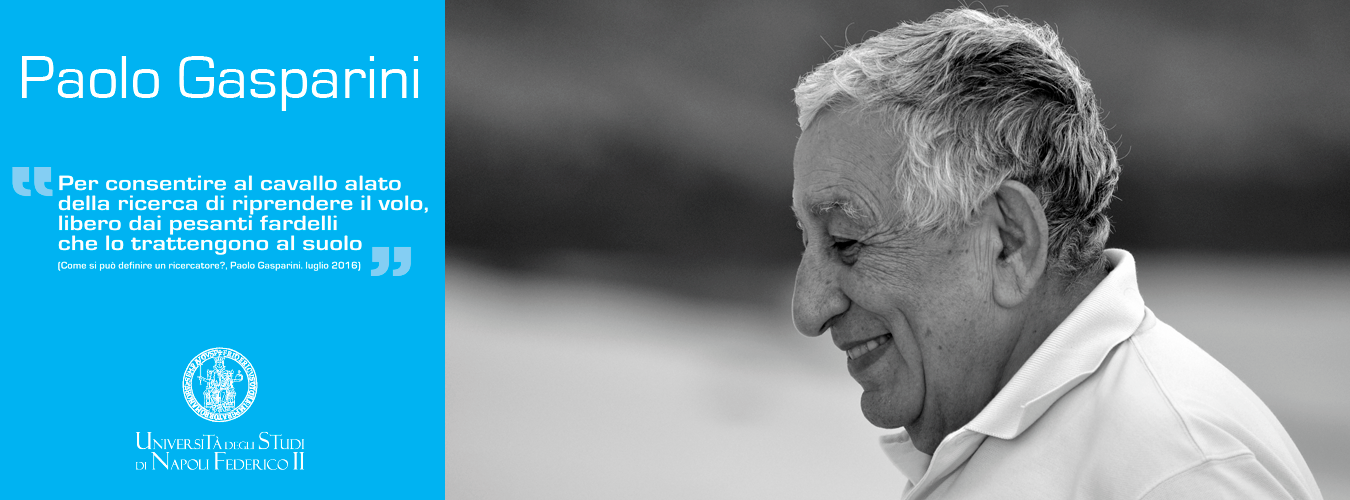Paolo Gasparini was not only a scientist, a geophysicist engaged in the study of earthquakes, volcanic eruptions and geo-hydrological hazard, and of the way in which to deal with such risks and prevent them causing potential damage. He was also a man of immense learning and interests outside science, with whom it was a delight to talk about good music, about jazz and his support for Napoli soccer team.
A scientist who always posed the problem not only of seeking the causes of natural events, but also of communicating his knowledge clearly and accessibly to all. This is also why in AMRA he launched the journal “Ambiente Rischio e Comunicazione” (Environment, Risk and Communication) in which the subject of communication assumes a primary role.
In the last few years he always accepted with pleasure the request to talk about “his frivolities”. And thus he began the account of events that had influenced the path he took in life: travels throughout the world, encounters with famous people and others, scientific “peregrinations” and innovative adventurous projects.
His acknowledged pragmatism, was none other than the desire to see a study, any study, completed – and in the best way. He often recalled the catch phrase of one of his mentors: Be the labour big or small. Do it well or not at all, adding that there are no problems but only solutions.
This site arises from the wish to share his memories and disseminate his teachings. Here is the testimony of those who knew him and of the people he worked with throughout his life, unceasingly, and the e-mails received from various parts of the world after his passing. A photogallery has been put together, showing some important moments in his life.
In his last article “Come si può definire un ricercatore” (How to define a researcher) published in July he wrote:
The training of real researchers or scientists does not stop in their early years of research in a group, but must continue throughout their lives.
Hence the wish of his family to set up an Association in his name, with the aim of contributing to the training of a new generation of researchers.
